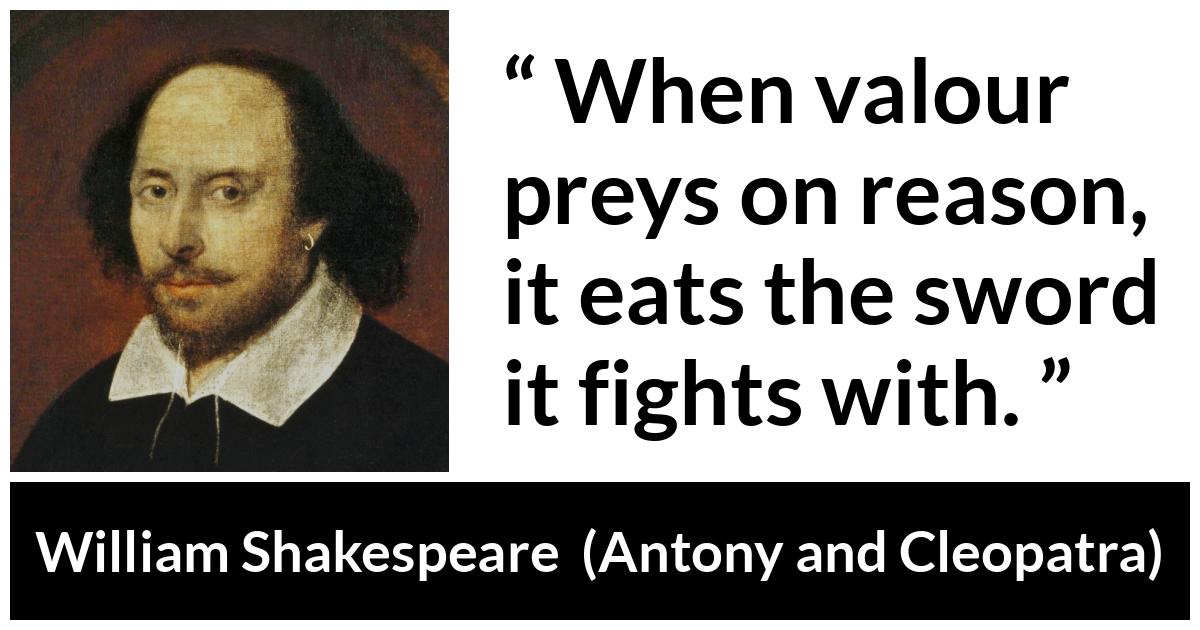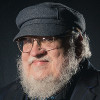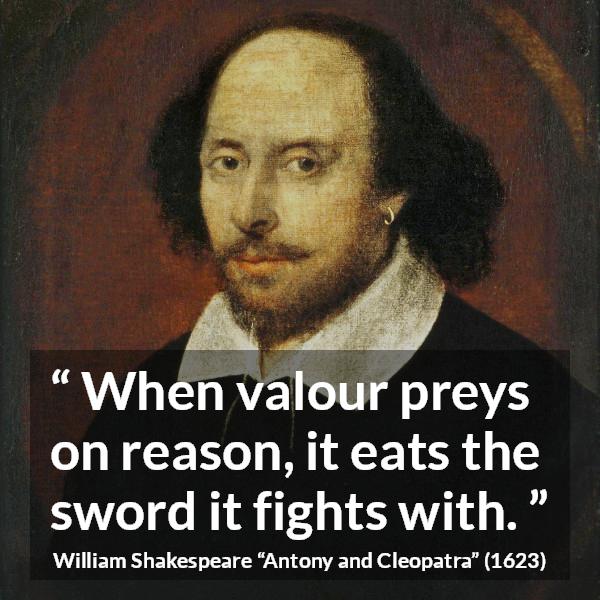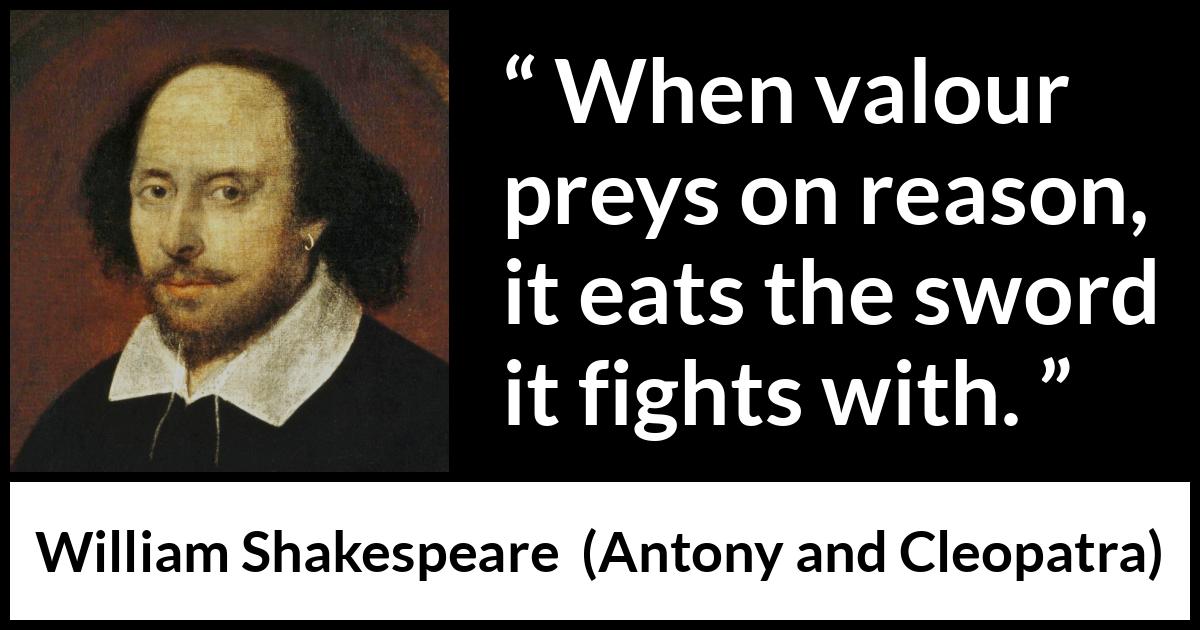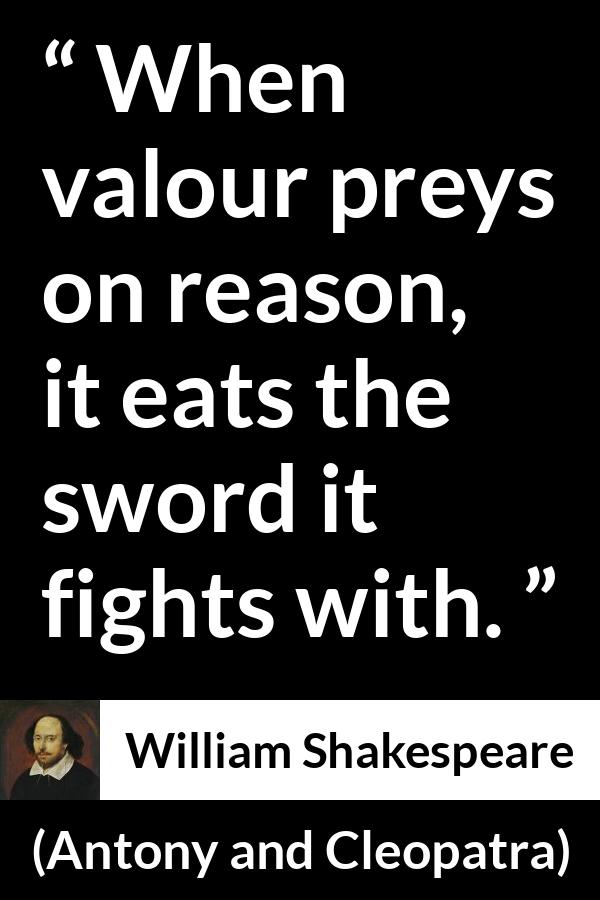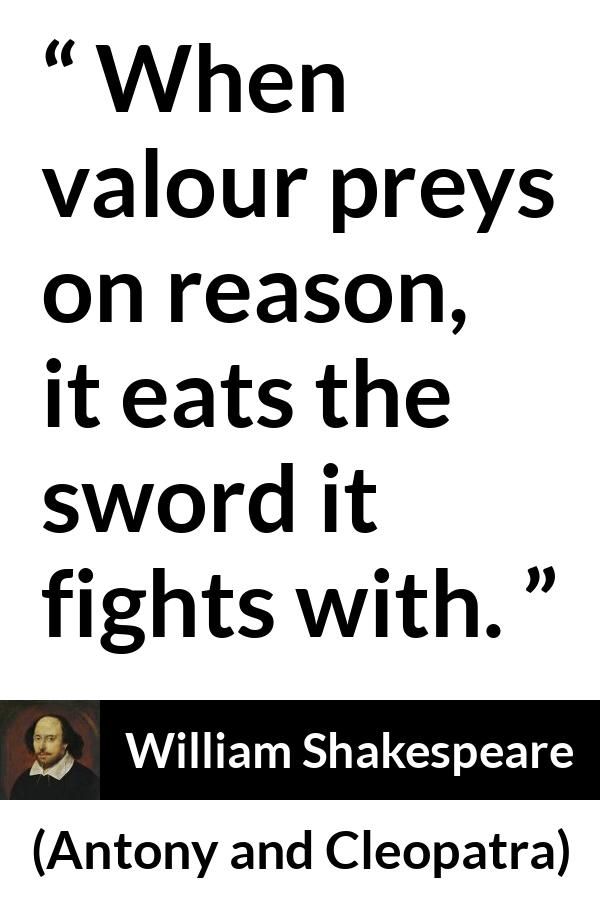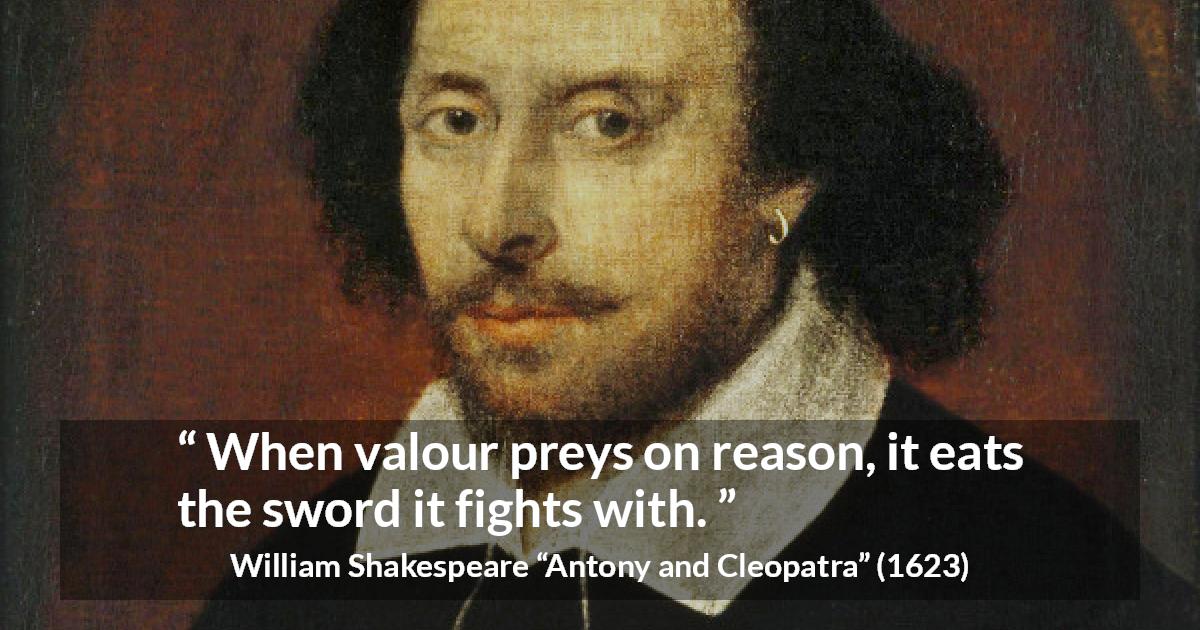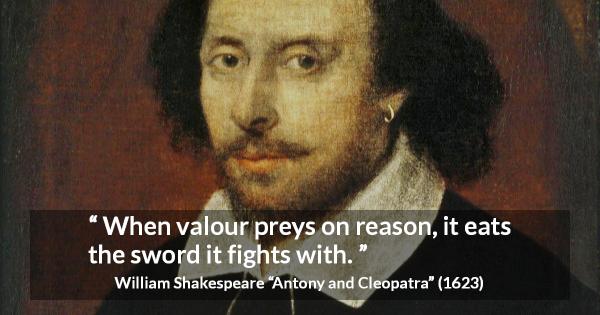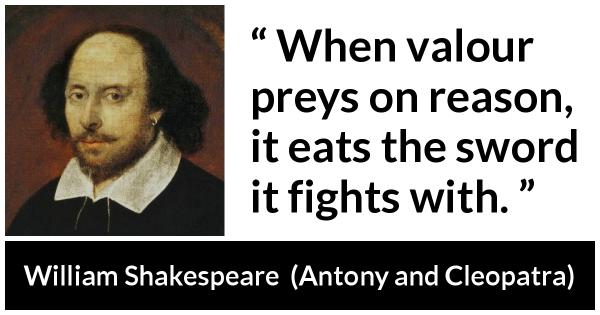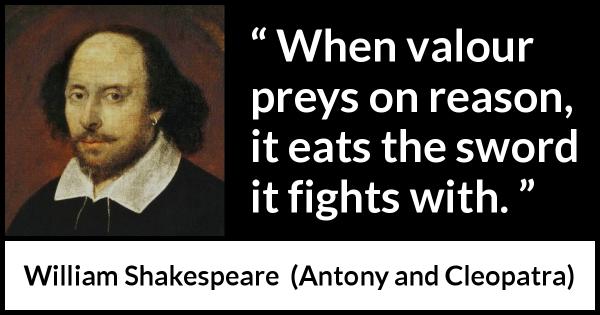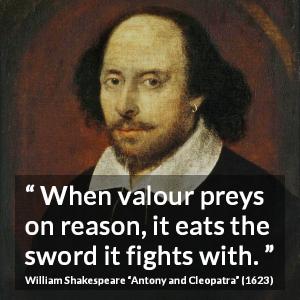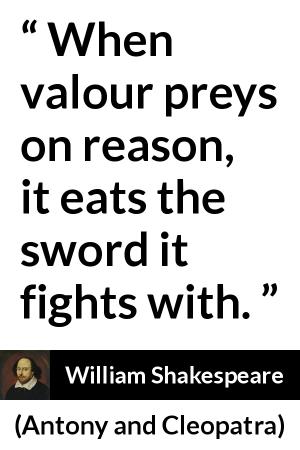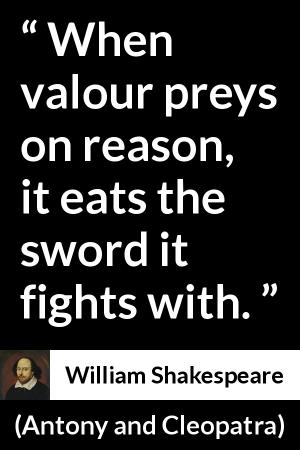“ When valour preys on reason, it eats the sword it fights with. ”
William Shakespeare, Antony and Cleopatra (1623). copy citation
| Author | William Shakespeare |
|---|---|
| Source | Antony and Cleopatra |
| Topic | reason bravery battle |
| Date | 1623 |
| Language | English |
| Reference | Antony and Cleopatra, Act III, Scene 13 |
| Note | Written between 1603 and 1607 Enobarbus line |
| Weblink | http://www.gutenberg.org/cache/epub/1534/pg1534-images.html |
Context
“[Exeunt all but ENOBARBUS.]
ENOBARBUS. Now he'll outstare the lightning. To be furious
Is to be frighted out of fear; and in that mood The dove will peck the estridge; and I see still A diminution in our captain's brain Restores his heart: when valour preys on reason, It eats the sword it fights with. I will seek
Some way to leave him. [Exit.]
ACT IV. SCENE I. CAESAR'S Camp at Alexandria.
[Enter CAESAR reading a letter; AGRIPPA, MAECENAS, and others.]
” source
ENOBARBUS. Now he'll outstare the lightning. To be furious
Is to be frighted out of fear; and in that mood The dove will peck the estridge; and I see still A diminution in our captain's brain Restores his heart: when valour preys on reason, It eats the sword it fights with. I will seek
Some way to leave him. [Exit.]
ACT IV. SCENE I. CAESAR'S Camp at Alexandria.
[Enter CAESAR reading a letter; AGRIPPA, MAECENAS, and others.]
” source
Meaning and analysis
Kwize Master
After Antony declares his desire to fight against Caesar and engage body and soul in the battle, Enobarbus, his most loyal supporter, finds himself alone. He then says that anger makes fear disappear, which makes people brave, but also exposes them to the danger of behaving unreasonably. Enobarbus then decides to leave Antony's service, because according to him, reason is the only weapon capable of giving victory.
useful
useless
